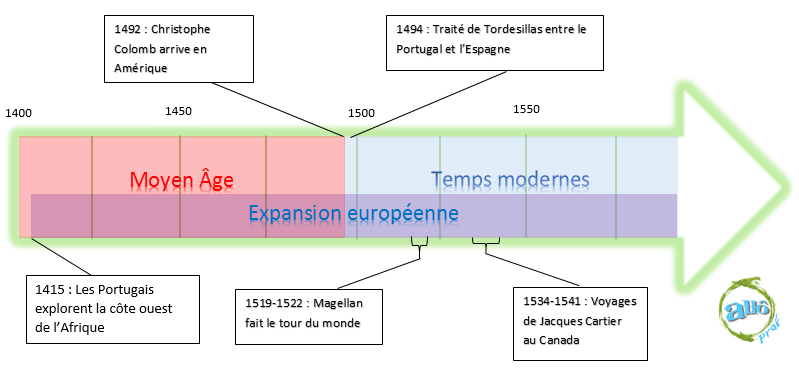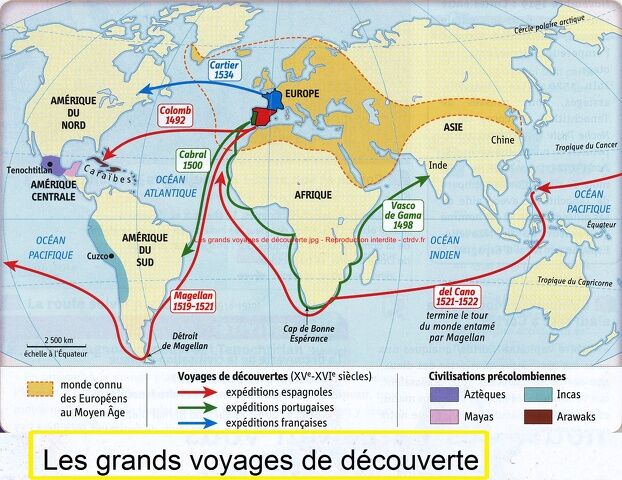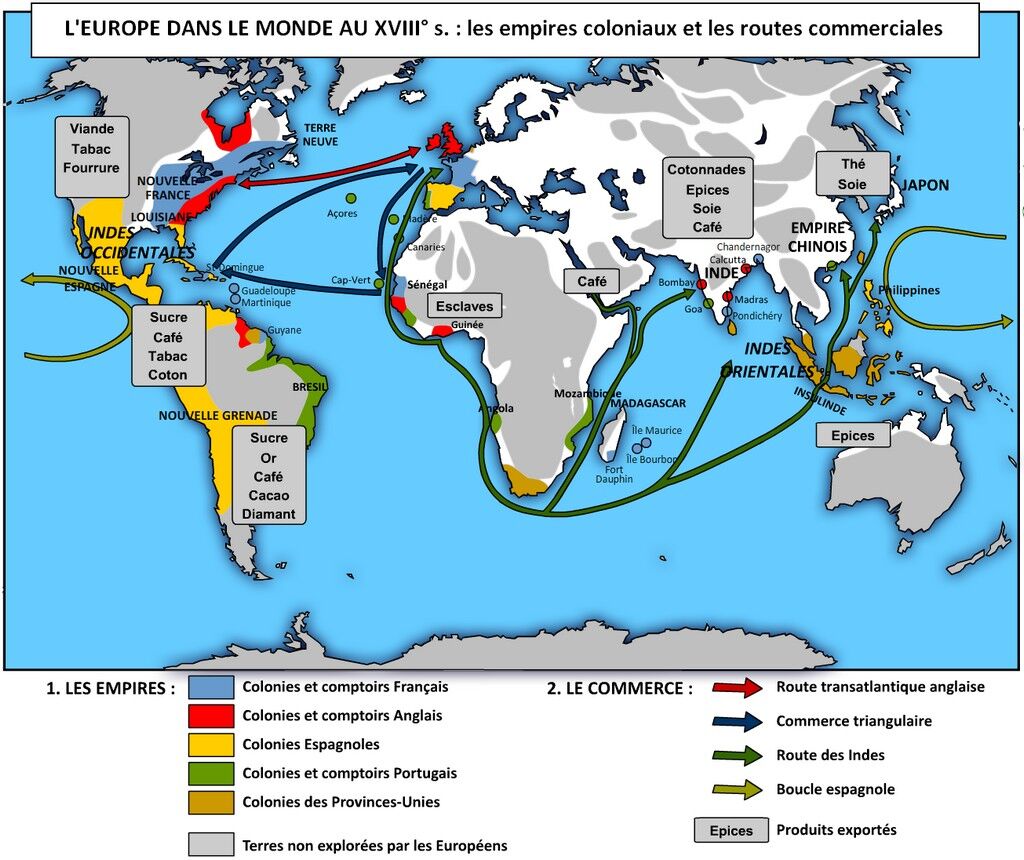Europeans began exploring the world in the early 15th century. European expansion thus began in the late Middle Ages and continued into Early Modern times. The Portuguese were the first to explore the west coast of Africa. Subsequently, other countries, such as France, Spain, England and the Netherlands, followed suit, discovering new territories by water.

Following Spain's discovery of a so-called silk road to Asia, certain states, often the wealthiest, decided to invest in the exploration of new territories. They commissioned navigators to set out on adventures on their behalf. These courageous adventurers travelled by boat with their crew, sometimes without a precise destination and without knowing where they would land. Expeditions can be successful, bringing wealth and glory to the kingdom in question. They can also end tragically, with a lack of food, a storm in the middle of the ocean or a shipwreck.

Note: Image in English coming soon.
More precisely, a colonial empire is a state which, thanks to its military and naval strength, has succeeded in obtaining colonies. A colonial empire is made up of a mother country and its colonies. For example, France (mother country) owns the territory of New France in America (colony).
States that embarked on major explorations gained territorial possessions all over the planet. These became veritable empires. As a result, a great deal of trade is established between the mother country and its possessions around the world. Trade was also conducted with other countries, always with a view to enriching the mother country.

Note: Image in English coming soon.
Thanks to all these great voyages, Europeans came to improve their conception of the world. Indeed, their knowledge of the territories around them was quite limited, considering that they were initially unaware of the existence of the American continent.